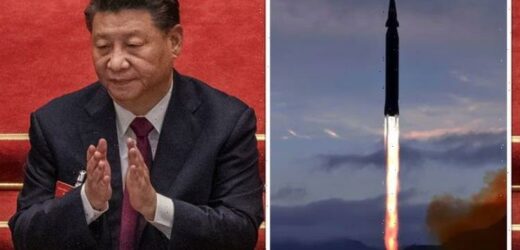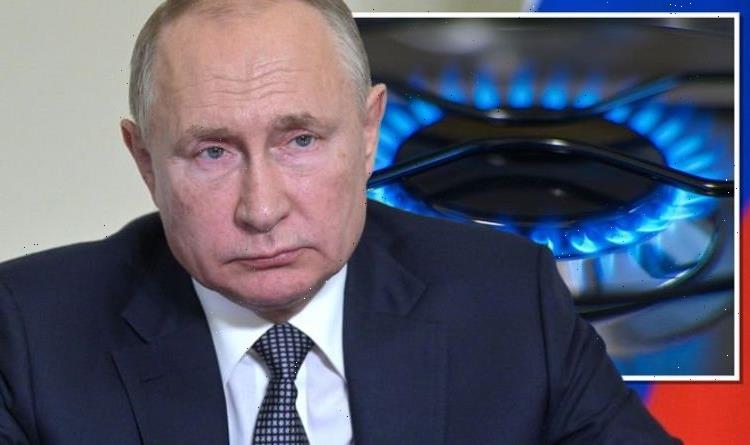China 'hijacking' the UK's 'green agenda' says Nawaz
We use your sign-up to provide content in ways you’ve consented to and to improve our understanding of you. This may include adverts from us and 3rd parties based on our understanding. You can unsubscribe at any time. More info
Experts have warned the use of a hypersonic missile in space is a “game-changer” and should serve as a Sputnik moment for the US. It comes after it was reported that Beijing launched a rocket carrying a hypersonic glide vehicle into space in August. It is said to have flown around the globe through low-orbit space before returning to Earth.
While the missile reportedly missed its target by about two dozen miles, the test left Washington hot under r the collar.
The Financial Times quoted one official as saying: “We have no idea how they did this.”
Countries including the US, UK, Russia and North Korea have all been working on developing hypersonic missiles.
Like traditional ballistic missiles, these rockets can deliver nuclear weapons and can fly at more than five times the speed of sound.


But ballistic missiles fly high into space in an arc to reach their target, while a hypersonic flies on a trajectory low in the atmosphere, potentially reaching a target quicker.
Crucially, a hypersonic missile is manoeuvrable – making it harder to track and defend against.
While countries like the US have developed systems designed to defend against cruise and ballistic missiles, the ability to track and take down a hypersonic missile remains a question.
China has been aggressively developing the technology, seeing it as crucial to defend against US gains in hypersonic and other technologies, according to a recent report by the US Congressional Research Service (CRS).
Drew Thompson, a former American defence department official with responsibility for China, said the test
“really should change US calculations”.

He added: “Especially if more tests improve the accuracy, establish its credibility, then I think it is a game changer in a way that little else has really shifted the balance.
“Once it works, once it’s credible, it negates US missile defences and it makes the US vulnerable and that has to fundamentally change US strategic calculations about its leverage and China’s ability to hold at risk major cities throughout the US.”
China’s ministers of defence have remained tight-lipped on the test.
Liu Pengyu, the spokesman at China’s embassy in Washington, told the FT that China always pursued a military policy that was “defensive in nature” and that its military development did not target any country
“We don’t have a global strategy and plans of military operations like the US does.

“And we are not at all interested in having an arms race with other countries,
He added: “In contrast, the US has in recent years been fabricating excuses like ‘the China threat’ to justify its arms expansion and development of hypersonic weapons.
“This has directly intensified [the] arms race in this category and severely undermined global strategic stability.”
It comes amid soaring world fears that China could soon invade Taiwan.
China’s President Xi Jinping has said that “reunification” with Taiwan “must be fulfilled”, as heightened tensions over the island continue.

Mr Xi said unification should be achieved peacefully, but warned that the Chinese people had a “glorious tradition” of opposing separatism.
In response, Taiwan said its future lay in the hands of its people.
Taiwan considers itself a sovereign state, while China views it as a breakaway province.
Beijing has not ruled out the possible use of force to achieve unification.
Source: Read Full Article


